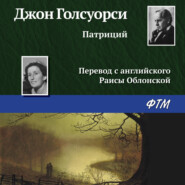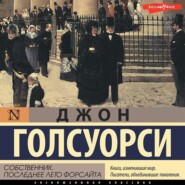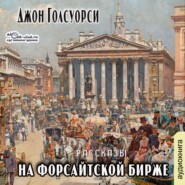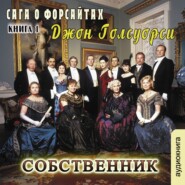По всем вопросам обращайтесь на: info@litportal.ru
(©) 2003-2024.
✖
Tatterdemalion
Настройки чтения
Размер шрифта
Высота строк
Поля
They shook hands, screwing up their mouths with pain, for their fists were badly bruised, and parted, Rudstock going to the North, Wilderton to the West.
1917.
IX
"THE DOG IT WAS THAT DIED"
Until the great war was over I had no idea that some of us who stayed at home made the great sacrifice.
My friend Harburn is, or rather was, a Northumbrian, or some kind of Northerner, a stocky man of perhaps fifty, with close-clipped grizzled hair and moustache, and a deep-coloured face. He was a neighbour of mine in the country, and we had the same kind of dogs – Airedales, never less than three at a time, so that for breeding purposes we were useful to each other. We often, too, went up to Town by the same train. His occupation was one which gave him opportunity of prominence in public life, but until the war he took little advantage of this, sunk in a kind of bluff indifferentism which was almost cynical. I used to look on him as a typically good-natured blunt Englishman, rather enjoying his cynicism, and appreciating his open-air tendencies – for he was a devotee of golf, and fond of shooting when he had the chance; a good companion, too, with an open hand to people in distress. He was unmarried, and dwelled in a bungalow-like house not far from mine, and next door to a German family called Holsteig, who had lived in England nearly twenty years. I knew them pretty well also – a very united trio, father, mother, and one son. The father, who came from Hanover, was something in the City, the mother was Scotch, and the son – the one I knew best and liked most – had just left his public school. This youth had a frank, open, blue-eyed face, and thick light hair brushed back without a parting – a very attractive, slightly Norwegian-looking type. His mother was devoted to him; she was a real West Highlander, slight, with dark hair going grey, high cheekbones, a sweet but rather ironical smile, and those grey eyes which have second sight in them. I several times met Harburn at their house, for he would go in to play billiards with Holsteig in the evenings, and the whole family were on very friendly terms with him.
The third morning after we had declared war on Germany Harburn, Holsteig, and I went up to Town in the same carriage. Harburn and I talked freely. But Holsteig, a fair, well-set-up man of about fifty, with a pointed beard and blue eyes like his son, sat immersed in his paper till Harburn said suddenly:
"I say, Holsteig, is it true that your boy was going off to join the German army?"
Holsteig looked up.
"Yes," he said. "He was born in Germany; he's liable to military service. But thank heaven, it isn't possible for him to go."
"But his mother?" said Harburn. "She surely wouldn't have let him?"
"She was very miserable, of course, but she thought duty came first."
"Duty! Good God! – my dear man! Half British, and living in this country all his life! I never heard of such a thing!" Holsteig shrugged his shoulders.
"In a crisis like this, what can you do except follow the law strictly? He is of military age and a German subject. We were thinking of his honour; but of course we're most thankful he can't get over to Germany."
"Well, I'm damned!" said Harburn. "You Germans are too bally conscientious altogether."
Holsteig did not answer.
I travelled back with Harburn the same evening, and he said to me:
"Once a German, always a German. Didn't that chap Holsteig astonish you this morning? In spite of living here so long and marrying a British wife, his sympathies are dead German, you see."
"Well," I replied; "put yourself in his place."
"I can't; I could never have lived in Germany. I wonder," he added reflectively, "I wonder if the chap's all right, Cumbermere?"
"Of course he's all right." Which was the wrong thing to say to Harburn if one wanted to re-establish his confidence in the Holsteigs, as I certainly did, for I liked them and was sure of their good faith. If I had said: "Of course he's a spy" – I should have rallied all Harburn's confidence in Holsteig, for he was naturally contradictious.
I only mention this little passage to show how early Harburn's thoughts began to turn to the subject which afterwards completely absorbed and inspired him till he died for his country.
I am not sure what paper first took up the question of interning all the Huns; but I fancy the point was raised originally rather from the instinct, deeply implanted in so many journals, for what would please the public, than out of any deep animus. At all events I remember meeting a sub-editor, who told me he had been opening letters of approval all the morning. "Never," said he, "have we had a stunt catch on so quickly. 'Why should that bally German round the corner get my custom?' and so forth. Britain for the British!"
"Rather bad luck," I said, "on people who've paid us the compliment of finding this the best country to live in!"
"Bad luck, no doubt," he replied, "mais la guerre c'est la guerre. You know Harburn, don't you? Did you see the article he wrote? By Jove, he pitched it strong."
When next I met Harburn himself, he began talking on this subject at once.
"Mark my words, Cumbermere, I'll have every German out of this country." His grey eyes seemed to glint with the snap and spark as of steel and flint and tinder; and I felt I was in the presence of a man who had brooded so over the German atrocities in Belgium that he was possessed by a sort of abstract hate.
"Of course," I said, "there have been many spies, but – "
"Spies and ruffians," he cried, "the whole lot of them."
"How many Germans do you know personally?" I asked him.
"Thank God! Not a dozen."
"And are they spies and ruffians?"
He looked at me and laughed, but that laugh was uncommonly like a snarl.
"You go in for 'fairness,'" he said; "and all that slop; take 'em by the throat – it's the only way."
It trembled on the tip of my tongue to ask him whether he meant to take the Holsteigs by the throat, but I swallowed it, for fear of doing them an injury. I was feeling much the same general abhorrence myself, and had to hold myself in all the time for fear it should gallop over my commonsense. But Harburn, I could see, was giving it full rein. His whole manner and personality somehow had changed. He had lost geniality, and that good-humoured cynicism which had made him an attractive companion; he was as if gnawed at inwardly – in a word, he already had a fixed idea.
Now, a cartoonist like myself has got to be interested in the psychology of men and things, and I brooded over Harburn, for it seemed to me remarkable that one whom I had always associated with good humour and bluff indifference should be thus obsessed. And I formed this theory about him: 'Here' – I said to myself – 'is one of Cromwell's Ironsides, born out of his age. In the slack times of peace he discovered no outlet for the grim within him – his fire could never be lighted by love, therefore he drifted in the waters of indifferentism. Now suddenly in this grizzly time he has found himself, a new man, girt and armed by this new passion of hate; stung and uplifted, as it were, by the sight of that which he can smite with a whole heart. It's deeply interesting' – I said to myself – 'Who could have dreamed of such a reincarnation; for what on the surface could possibly be less alike than an 'Ironside,' and Harburn as I've known him up to now?' And I used his face for the basis of a cartoon which represented a human weather-vane continually pointing to the East, no matter from what quarter the wind blew. He recognised himself, and laughed when he saw me – rather pleased, in fact, but in that laugh there was a sort of truculence, as if the man had the salt taste of blood at the back of his mouth.
"Ah!" he said, "you may joke about it, but I've got my teeth into them all right. The swine!"
And there was no doubt he had – the man had become a force; unhappy Germans, a few of them spies, no doubt, but the great majority as certainly innocent, were being wrenched from their trades and families, and piled into internment camps all day and every day. And the faster they were piled in, the higher grew his stock, as a servant of his country. I'm sure he did not do it to gain credit; the thing was a crusade to him, something sacred – 'his bit'; but I believe he also felt for the first time in his life that he was really living, getting out of life the full of its juice. Was he not smiting hip and thigh? He longed, I am sure, to be in the thick of the actual fighting, but age debarred him, and he was not of that more sensitive type which shrinks from smiting the defenceless if it cannot smite anything stronger. I remember saying to him once:
"Harburn, do you ever think of the women and children of your victims?"
He drew his lips back, and I saw how excellent his teeth were.
"The women are worse than the men, I believe," he said. "I'd put them in, too, if I could. As for the children, they're all the better for being without fathers of that kidney."
He really was a little mad on the subject; no more so, of course, than any other man with a fixed idea, but certainly no less.
In those days I was here, there, and everywhere, and had let my country cottage, so I saw nothing of the Holsteigs, and indeed had pretty well forgotten their existence. But coming back at the end of 1917 from a long spell with the Red Cross I found among my letters one from Mrs. Holsteig:
"Dear Mr. Cumbermere,
You were always so friendly to us that I have summoned up courage to write this letter. You know perhaps that my husband was interned over a year ago, and repatriated last September; he has lost everything, of course; but so far he is well and able to get along in Germany. Harold and I have been jogging on here as best we can on my own little income – 'Huns in our midst' as we are, we see practically nobody. What a pity we cannot all look into each other's hearts, isn't it? I used to think we were a 'fair-play' people, but I have learned the bitter truth – that there is no such thing when pressure comes. It's much worse for Harold than for me; he feels his paralysed position intensely, and would, I'm sure, really rather be 'doing his bit' as an interned, than be at large, subject to everyone's suspicion and scorn. But I am terrified all the time that they will intern him. You used to be intimate with Mr. Harburn. We have not seen him since the first autumn of the war, but we know that he has been very active in the agitation, and is very powerful in this matter. I have wondered whether he can possibly realise what this indiscriminate internment of the innocent means to the families of the interned. Could you not find a chance to try and make him understand? If he and a few others were to stop hounding on the government, it would cease, for the authorities must know perfectly well that all the dangerous have been disposed of long ago. You have no notion how lonely one feels in one's native land nowadays; if I should lose Harold too I think I might go under, though that has never been my habit.
Believe me, dear Mr. Cumbermere,
Most truly yours
Helen Holsteig."
On receiving this letter I was moved by compassion, for it required no stretch of imagination to picture the life of that lonely British mother and her son; and I thought very carefully over the advisability of speaking to Harburn, and consulted the proverbs: "Speech is silver, but Silence is golden – When in doubt play trumps." "Second thoughts are best – He who hesitates is lost." "Look before you leap – Delays are dangerous." They balanced so perfectly that I had recourse to Commonsense, which told me to abstain. But meeting Harburn at the Club a few days later and finding him in a genial mood, I let impulse prevail, and said:
"By the way, Harburn, you remember the Holsteigs? I had a letter from poor Mrs. Holsteig the other day; she seems terrified that they'll intern her son, that particularly nice boy. Don't you think it's time you let up on these unhappy people?"
The moment I reached the word Holsteig I saw I had made a mistake, and only went on because to have stopped at that would have been worse still. The hair had bristled up on his back, as it were, and he said:
1917.
IX
"THE DOG IT WAS THAT DIED"
Until the great war was over I had no idea that some of us who stayed at home made the great sacrifice.
My friend Harburn is, or rather was, a Northumbrian, or some kind of Northerner, a stocky man of perhaps fifty, with close-clipped grizzled hair and moustache, and a deep-coloured face. He was a neighbour of mine in the country, and we had the same kind of dogs – Airedales, never less than three at a time, so that for breeding purposes we were useful to each other. We often, too, went up to Town by the same train. His occupation was one which gave him opportunity of prominence in public life, but until the war he took little advantage of this, sunk in a kind of bluff indifferentism which was almost cynical. I used to look on him as a typically good-natured blunt Englishman, rather enjoying his cynicism, and appreciating his open-air tendencies – for he was a devotee of golf, and fond of shooting when he had the chance; a good companion, too, with an open hand to people in distress. He was unmarried, and dwelled in a bungalow-like house not far from mine, and next door to a German family called Holsteig, who had lived in England nearly twenty years. I knew them pretty well also – a very united trio, father, mother, and one son. The father, who came from Hanover, was something in the City, the mother was Scotch, and the son – the one I knew best and liked most – had just left his public school. This youth had a frank, open, blue-eyed face, and thick light hair brushed back without a parting – a very attractive, slightly Norwegian-looking type. His mother was devoted to him; she was a real West Highlander, slight, with dark hair going grey, high cheekbones, a sweet but rather ironical smile, and those grey eyes which have second sight in them. I several times met Harburn at their house, for he would go in to play billiards with Holsteig in the evenings, and the whole family were on very friendly terms with him.
The third morning after we had declared war on Germany Harburn, Holsteig, and I went up to Town in the same carriage. Harburn and I talked freely. But Holsteig, a fair, well-set-up man of about fifty, with a pointed beard and blue eyes like his son, sat immersed in his paper till Harburn said suddenly:
"I say, Holsteig, is it true that your boy was going off to join the German army?"
Holsteig looked up.
"Yes," he said. "He was born in Germany; he's liable to military service. But thank heaven, it isn't possible for him to go."
"But his mother?" said Harburn. "She surely wouldn't have let him?"
"She was very miserable, of course, but she thought duty came first."
"Duty! Good God! – my dear man! Half British, and living in this country all his life! I never heard of such a thing!" Holsteig shrugged his shoulders.
"In a crisis like this, what can you do except follow the law strictly? He is of military age and a German subject. We were thinking of his honour; but of course we're most thankful he can't get over to Germany."
"Well, I'm damned!" said Harburn. "You Germans are too bally conscientious altogether."
Holsteig did not answer.
I travelled back with Harburn the same evening, and he said to me:
"Once a German, always a German. Didn't that chap Holsteig astonish you this morning? In spite of living here so long and marrying a British wife, his sympathies are dead German, you see."
"Well," I replied; "put yourself in his place."
"I can't; I could never have lived in Germany. I wonder," he added reflectively, "I wonder if the chap's all right, Cumbermere?"
"Of course he's all right." Which was the wrong thing to say to Harburn if one wanted to re-establish his confidence in the Holsteigs, as I certainly did, for I liked them and was sure of their good faith. If I had said: "Of course he's a spy" – I should have rallied all Harburn's confidence in Holsteig, for he was naturally contradictious.
I only mention this little passage to show how early Harburn's thoughts began to turn to the subject which afterwards completely absorbed and inspired him till he died for his country.
I am not sure what paper first took up the question of interning all the Huns; but I fancy the point was raised originally rather from the instinct, deeply implanted in so many journals, for what would please the public, than out of any deep animus. At all events I remember meeting a sub-editor, who told me he had been opening letters of approval all the morning. "Never," said he, "have we had a stunt catch on so quickly. 'Why should that bally German round the corner get my custom?' and so forth. Britain for the British!"
"Rather bad luck," I said, "on people who've paid us the compliment of finding this the best country to live in!"
"Bad luck, no doubt," he replied, "mais la guerre c'est la guerre. You know Harburn, don't you? Did you see the article he wrote? By Jove, he pitched it strong."
When next I met Harburn himself, he began talking on this subject at once.
"Mark my words, Cumbermere, I'll have every German out of this country." His grey eyes seemed to glint with the snap and spark as of steel and flint and tinder; and I felt I was in the presence of a man who had brooded so over the German atrocities in Belgium that he was possessed by a sort of abstract hate.
"Of course," I said, "there have been many spies, but – "
"Spies and ruffians," he cried, "the whole lot of them."
"How many Germans do you know personally?" I asked him.
"Thank God! Not a dozen."
"And are they spies and ruffians?"
He looked at me and laughed, but that laugh was uncommonly like a snarl.
"You go in for 'fairness,'" he said; "and all that slop; take 'em by the throat – it's the only way."
It trembled on the tip of my tongue to ask him whether he meant to take the Holsteigs by the throat, but I swallowed it, for fear of doing them an injury. I was feeling much the same general abhorrence myself, and had to hold myself in all the time for fear it should gallop over my commonsense. But Harburn, I could see, was giving it full rein. His whole manner and personality somehow had changed. He had lost geniality, and that good-humoured cynicism which had made him an attractive companion; he was as if gnawed at inwardly – in a word, he already had a fixed idea.
Now, a cartoonist like myself has got to be interested in the psychology of men and things, and I brooded over Harburn, for it seemed to me remarkable that one whom I had always associated with good humour and bluff indifference should be thus obsessed. And I formed this theory about him: 'Here' – I said to myself – 'is one of Cromwell's Ironsides, born out of his age. In the slack times of peace he discovered no outlet for the grim within him – his fire could never be lighted by love, therefore he drifted in the waters of indifferentism. Now suddenly in this grizzly time he has found himself, a new man, girt and armed by this new passion of hate; stung and uplifted, as it were, by the sight of that which he can smite with a whole heart. It's deeply interesting' – I said to myself – 'Who could have dreamed of such a reincarnation; for what on the surface could possibly be less alike than an 'Ironside,' and Harburn as I've known him up to now?' And I used his face for the basis of a cartoon which represented a human weather-vane continually pointing to the East, no matter from what quarter the wind blew. He recognised himself, and laughed when he saw me – rather pleased, in fact, but in that laugh there was a sort of truculence, as if the man had the salt taste of blood at the back of his mouth.
"Ah!" he said, "you may joke about it, but I've got my teeth into them all right. The swine!"
And there was no doubt he had – the man had become a force; unhappy Germans, a few of them spies, no doubt, but the great majority as certainly innocent, were being wrenched from their trades and families, and piled into internment camps all day and every day. And the faster they were piled in, the higher grew his stock, as a servant of his country. I'm sure he did not do it to gain credit; the thing was a crusade to him, something sacred – 'his bit'; but I believe he also felt for the first time in his life that he was really living, getting out of life the full of its juice. Was he not smiting hip and thigh? He longed, I am sure, to be in the thick of the actual fighting, but age debarred him, and he was not of that more sensitive type which shrinks from smiting the defenceless if it cannot smite anything stronger. I remember saying to him once:
"Harburn, do you ever think of the women and children of your victims?"
He drew his lips back, and I saw how excellent his teeth were.
"The women are worse than the men, I believe," he said. "I'd put them in, too, if I could. As for the children, they're all the better for being without fathers of that kidney."
He really was a little mad on the subject; no more so, of course, than any other man with a fixed idea, but certainly no less.
In those days I was here, there, and everywhere, and had let my country cottage, so I saw nothing of the Holsteigs, and indeed had pretty well forgotten their existence. But coming back at the end of 1917 from a long spell with the Red Cross I found among my letters one from Mrs. Holsteig:
"Dear Mr. Cumbermere,
You were always so friendly to us that I have summoned up courage to write this letter. You know perhaps that my husband was interned over a year ago, and repatriated last September; he has lost everything, of course; but so far he is well and able to get along in Germany. Harold and I have been jogging on here as best we can on my own little income – 'Huns in our midst' as we are, we see practically nobody. What a pity we cannot all look into each other's hearts, isn't it? I used to think we were a 'fair-play' people, but I have learned the bitter truth – that there is no such thing when pressure comes. It's much worse for Harold than for me; he feels his paralysed position intensely, and would, I'm sure, really rather be 'doing his bit' as an interned, than be at large, subject to everyone's suspicion and scorn. But I am terrified all the time that they will intern him. You used to be intimate with Mr. Harburn. We have not seen him since the first autumn of the war, but we know that he has been very active in the agitation, and is very powerful in this matter. I have wondered whether he can possibly realise what this indiscriminate internment of the innocent means to the families of the interned. Could you not find a chance to try and make him understand? If he and a few others were to stop hounding on the government, it would cease, for the authorities must know perfectly well that all the dangerous have been disposed of long ago. You have no notion how lonely one feels in one's native land nowadays; if I should lose Harold too I think I might go under, though that has never been my habit.
Believe me, dear Mr. Cumbermere,
Most truly yours
Helen Holsteig."
On receiving this letter I was moved by compassion, for it required no stretch of imagination to picture the life of that lonely British mother and her son; and I thought very carefully over the advisability of speaking to Harburn, and consulted the proverbs: "Speech is silver, but Silence is golden – When in doubt play trumps." "Second thoughts are best – He who hesitates is lost." "Look before you leap – Delays are dangerous." They balanced so perfectly that I had recourse to Commonsense, which told me to abstain. But meeting Harburn at the Club a few days later and finding him in a genial mood, I let impulse prevail, and said:
"By the way, Harburn, you remember the Holsteigs? I had a letter from poor Mrs. Holsteig the other day; she seems terrified that they'll intern her son, that particularly nice boy. Don't you think it's time you let up on these unhappy people?"
The moment I reached the word Holsteig I saw I had made a mistake, and only went on because to have stopped at that would have been worse still. The hair had bristled up on his back, as it were, and he said:

















